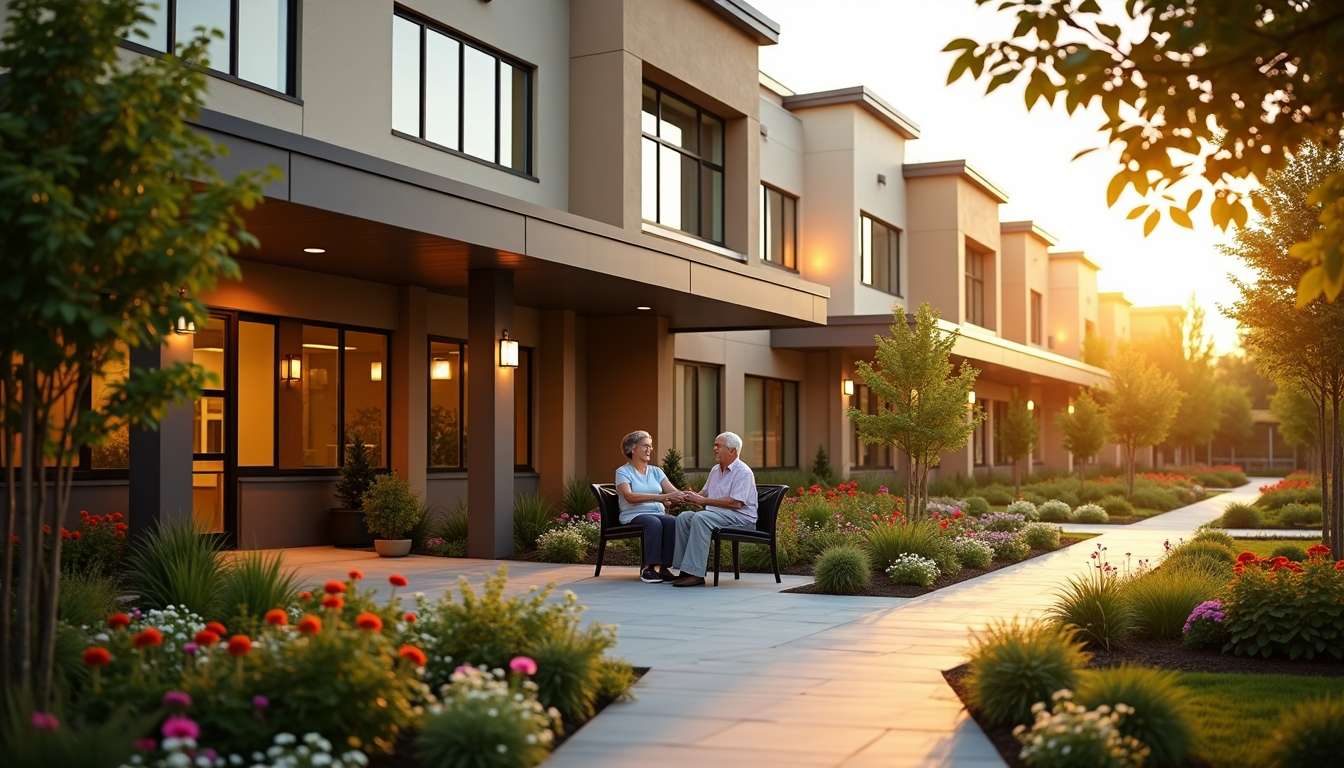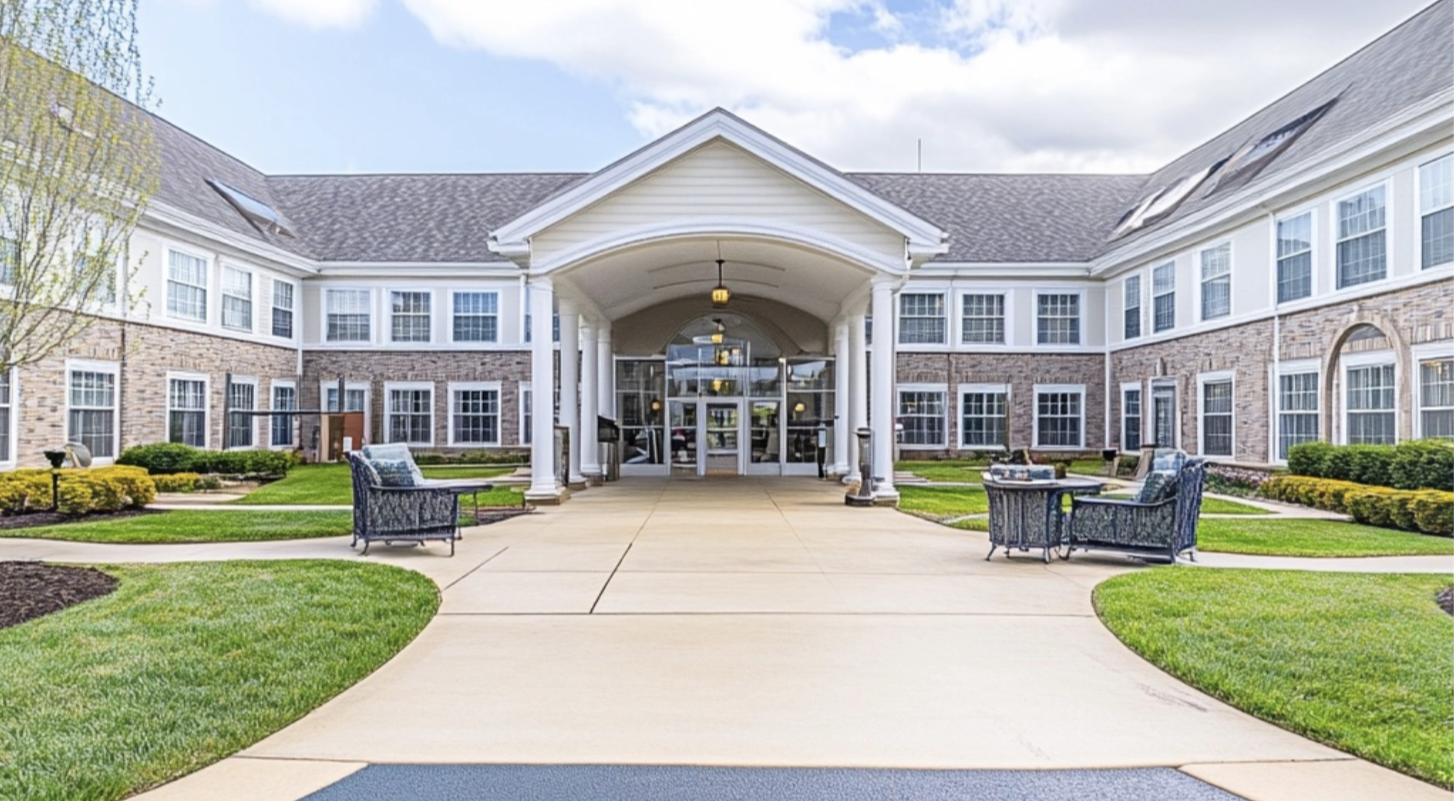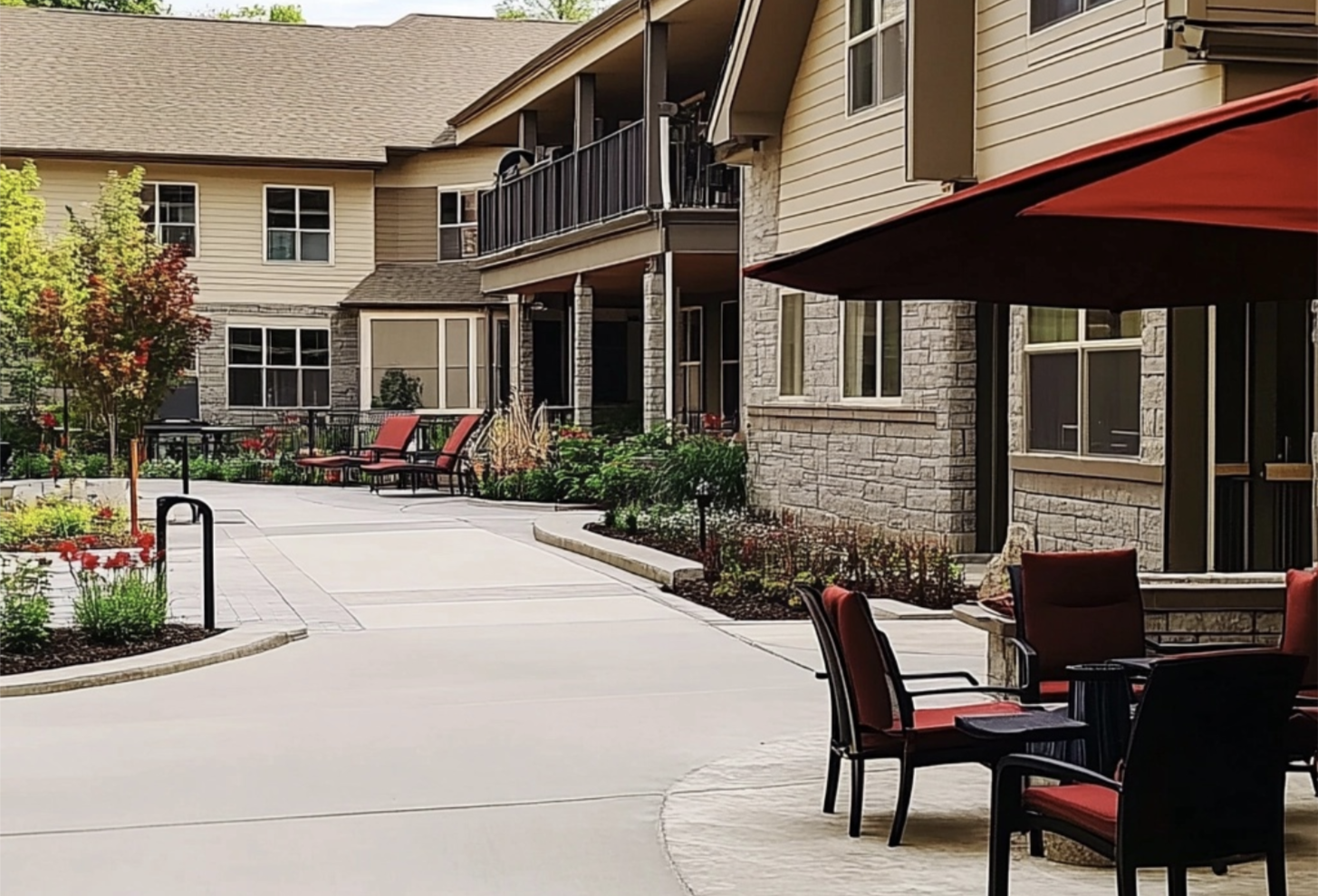Did you know that over 200,000 seniors in America experience homelessness each year? Even more shocking – this number has been steadily rising, with many older adults just one emergency away from losing their homes.
We understand how overwhelming it feels when you or a loved one faces a housing crisis. Finding emergency shelter for seniors requires quick thinking and knowing where to look for help. While temporary housing for seniors exists, many people don’t know about these resources until they desperately need them.
That’s why we’ve created this comprehensive guide to emergency housing for seniors. We’ll walk you through immediate solutions, government assistance programs, and long-term planning strategies to help secure stable housing. Whether you’re facing an urgent situation or want to prepare for the future, we’ll show you exactly what steps to take.
Let’s explore your options and find the right housing solution – because every senior deserves a safe place to call home.
Understanding Senior Housing Emergencies
We often see senior housing emergencies develop gradually, though they can also arise suddenly from unexpected life changes. Today, about one-third of senior households (11.2 million people) struggle with housing costs, making this a widespread concern we need to address.
Common Causes of Senior Housing Crisis
The roots of senior housing emergencies typically stem from financial pressures. We’re seeing more older adults carrying mortgage debt into retirement, with the percentage nearly doubling for those 65-74 and almost tripling for those over 75. Fixed retirement incomes make it particularly challenging when inflation affects housing costs.
Physical accessibility becomes another crucial factor. We’ve found that less than 4% of U.S. homes offer basic accessibility features like no-step entry and wide doorways, while approximately 44% of households need some type of modification for safe living.
Warning Signs to Watch For
We’ve identified several critical warning signs that often precede a housing crisis:
- Changes in Home Environment: Overflowing trash, dirty dishes, and general uncleanliness
- Financial Red Flags: Unopened bills, utility shutoffs, or repeated mistakes with bill payments
- Personal Care Issues: Deteriorating hygiene, unexplained bruises, or significant weight changes
- Home Maintenance Problems: Neglected repairs, untended yard, or burned-out light bulbs
Impact on Senior Health and Wellbeing
The health consequences of housing instability can be severe. We’ve observed that homeless seniors aged 50 or older often show health conditions similar to those typically seen in 80-year-olds. Housing cost burdens force many seniors to cut back on essential needs like food and medical care.
Social isolation compounds these challenges. About 22% of non-driving seniors aged 85 and older live in households with no drivers, limiting their access to healthcare and community services. Additionally, we’ve found that 12% of those aged 50-64, 20% of those 65-79, and 41% of those 80 and older have difficulty leaving their homes due to medical conditions.
These challenges create a cycle where housing problems worsen health issues, and declining health makes it harder to maintain stable housing. Only 14% of older adults living alone can afford a daily visit from a home health aide, highlighting the intersection between housing and healthcare needs.
Immediate Action Steps for Housing Crisis
When a housing crisis strikes, taking immediate action is crucial. We’ve developed a comprehensive response plan based on years of experience helping seniors secure emergency housing.
First 24-Hour Emergency Response Plan
Our immediate response protocol focuses on securing safe shelter while preserving important documentation. Here’s what we recommend doing in the first 24 hours:
- Call the Crisis Hotline (2-1-1) immediately – this is often required before accessing shelter services
- Gather essential documents (ID, Medicare cards, Social Security information)
- Contact your local emergency management office to understand available resources
- Pack necessary medications and medical supplies
- Reach out to your support network for temporary assistance
Temporary Shelter Options
We’ve found that emergency housing programs vary by location, but several options are typically available. The United Way partners with local organizations to provide immediate shelter access. Through our experience, we know that finding a shelter is typically faster than applying for housing vouchers.
For seniors with medical needs, we recommend Crisis Residential Units (CRUs), which offer short-term alternatives to hospitalization. These facilities typically provide 10-14 days of stabilization support.
Emergency Contact Resources
We’ve compiled these essential resources for immediate assistance:
- 24/7 Crisis Hotline: Dial 2-1-1 to connect with United Way’s emergency housing services
- NOAA Weather Radio: Keep tuned to local emergency stations for evacuation notices
- Emergency Management Office: Contact your local office for community-specific resources
- Support Network: Ensure at least one person has your house key and knows your emergency supplies location
Remember, we recommend documenting all emergency-related incidents, including dates, types of emergencies, and any medical treatment required. This documentation can be crucial for accessing additional support services.
For veterans facing housing emergencies, we suggest contacting the HUD-VASH program, which provides specialized support and housing vouchers. Additionally, if you have specific medical needs, we can help coordinate with local healthcare providers to ensure continuous care during the transition.
Navigating Government Assistance Programs
Let’s explore the government assistance programs that can provide stable housing solutions for seniors facing housing emergencies. We’ve helped numerous seniors navigate these programs successfully, and we’ll share our expertise to make the process clearer for you.
Housing Choice Voucher Program Guide
We often recommend the Housing Choice Voucher Program as a primary solution for seniors seeking affordable housing. This federal program helps very low-income families and seniors afford safe, decent housing in the private market. Here’s what we’ve learned about qualification:
- Your income must not exceed 50% of the median income for your chosen area
- You must be a U.S. citizen or have eligible immigration status
- The program requires that 75% of vouchers go to families with incomes at or below 30% of the area median income
Section 202 Housing Benefits
The Section 202 Supportive Housing program specifically serves seniors aged 62 and older. We’ve found this program particularly beneficial as it combines housing with supportive services. To qualify, your household must earn less than 50% of the Area Median Income. The program offers:
- Rental assistance covering the difference between your contribution and the approved rent
- Support services like cleaning, cooking, and transportation
- A service coordinator who connects residents with community resources
Veterans’ Housing Support
For our senior veterans facing housing emergencies, we recommend the HUD-Veterans Affairs Supportive Housing (HUD-VASH) program. This program combines Housing Choice Vouchers with VA services. We’ve seen it help countless veterans through:
- Direct rental assistance for privately owned housing
- Case management and clinical services through VA medical centers
- Support for veterans experiencing homelessness
When applying for these programs, we always remind seniors that waiting periods are common due to high demand. However, we’ve found that many housing authorities give preference to seniors who are homeless or living in substandard housing. While waiting, we recommend staying in touch with your local Public Housing Agency and keeping your contact information updated.
Remember, you’ll typically need to pay 30% of your monthly adjusted income for rent and utilities under these programs. We can help you calculate this amount and understand what additional costs you might face.
Alternative Housing Solutions
Beyond government assistance, we’ve identified several alternative housing solutions that can provide immediate help during housing emergencies. Our research shows these options often move faster than traditional government programs.
Non-Profit Housing Programs
We work closely with several non-profit organizations that specialize in senior housing. The Volunteers of America network maintains over 500 properties across 42 states, managing more than 20,000 affordable housing units. Through our partnerships, we’ve found that non-profit communities often provide additional support services beyond just housing.
Key benefits we’ve seen include:
- Rent based on income (typically 30% of adjusted income)
- On-site support services
- Community-oriented programs
- Healthcare coordination
Faith-Based Housing Assistance
We’ve partnered with numerous faith-based organizations offering emergency housing solutions. The Salvation Army operates several senior housing facilities, including Silvercrest Senior Residences, where residents pay only 30% of their income for housing. Through our experience, we’ve found that faith-based communities often provide:
- Apartment-style living with private kitchens
- Regular group activities
- Monthly healthcare professional visits
- Nutritional support programs
Christian Care Communities offer affordable housing specifically designed for seniors living on fixed incomes. We’ve helped many seniors access these programs, which often include assistance with qualifying for government support.
Private Sector Emergency Options
In our work with seniors facing housing emergencies, we’ve found that private sector solutions can provide quick temporary housing. Recent data shows that the need for emergency senior housing is growing rapidly, with projections indicating the population of unhoused older adults will triple between 2017 and 2030.
We’ve seen success with converted hotels offering specialized senior accommodations. For example, in Phoenix, a converted hotel now provides 170 beds specifically for people over 55, offering services ranging from daily meals to behavioral health resources. These facilities often include:
- Private or semi-private rooms
- Daily meals
- Transportation services
- Case management support
- Laundry facilities
Through our experience, we’ve found that many private facilities can accommodate stays up to 90 days, providing crucial time for seniors to secure permanent housing solutions.
Creating a Long-Term Housing Plan
Planning ahead can prevent the emergency housing situations we discussed earlier. We’ve found that while 88% of adults aged 50-80 want to stay in their homes as they age, only 15% have seriously considered the necessary modifications to do so.
Financial Assessment and Planning
We recommend starting with a thorough financial evaluation. Our experience shows that housing ranks among the biggest monthly expenses for seniors. Here’s what we suggest assessing:
- Current income sources and retirement savings
- Monthly housing costs and potential future expenses
- Property taxes and maintenance costs
- Available equity in current home
- Insurance coverage and healthcare costs
We’ve observed that just 19% of seniors feel confident they can afford to hire help for personal care or household chores. That’s why we emphasize the importance of early financial planning.
Support Network Development
We strongly recommend creating a robust support system before any housing transition becomes necessary. The American Red Cross suggests identifying at least three people in your local area who can check on you during emergencies.
When developing your support network, we focus on:
- Family and Friends: Establish clear communication about your wishes and plans
- Healthcare Providers: Maintain connections with medical professionals
- Community Organizations: Build relationships with local senior services
- Neighbors: Create mutual support arrangements
Housing Transition Strategies
We’ve identified several innovative housing solutions that can help seniors maintain independence while ensuring necessary support. The “village model” has gained significant traction, with nearly 300 villages across the U.S.. This approach allows seniors to:
- Stay in their homes longer
- Create support networks with neighbors
- Access vetted services through membership
- Participate in social activities
For those considering more structured options, we’ve seen Continuing Care Retirement Communities (CCRCs) provide an effective continuum of care. These communities allow residents to transition from independent living to higher levels of care as needed.
We emphasize that housing decisions significantly impact quality of life. Through our work, we’ve found that early planning and clear communication with family members about wishes and concerns helps avoid misunderstandings. Remember, accepting some assistance now may help you maintain independence longer in your chosen community.
Conclusion
Senior housing emergencies require quick thinking and decisive action, but we’ve shown you multiple paths to secure safe, stable housing. From immediate shelter options through 211 services to long-term solutions like Housing Choice Vouchers and Section 202 programs, resources exist to help seniors maintain their independence and dignity.
We understand that navigating housing challenges can feel overwhelming, especially during a crisis. Remember that building a strong support network and creating a detailed financial plan significantly reduces your risk of housing emergencies. Local organizations, faith-based communities, and government programs stand ready to assist – you just need to know where to look and how to access their services.
Most importantly, take action before a crisis occurs. Start evaluating your current housing situation, research available programs in your area, and gather essential documents now. Small steps today can prevent major housing difficulties tomorrow. Every senior deserves safe, affordable housing, and with proper planning and the right resources, we can help make that goal a reality.
FAQs
Q1. What immediate steps should seniors take during a housing emergency? In a housing crisis, seniors should immediately call the Crisis Hotline (2-1-1) for shelter services, gather essential documents, contact local emergency management, pack necessary medications, and reach out to their support network for temporary assistance.
Q2. Are there government programs specifically designed to help seniors with housing? Yes, there are several government programs for senior housing assistance. The Housing Choice Voucher Program and Section 202 Supportive Housing program offer rental assistance for low-income seniors. Veterans can also access the HUD-VASH program for housing support.
Q3. What alternative housing options are available for seniors facing emergencies? Seniors can explore non-profit housing programs, faith-based housing assistance, and private sector emergency options. These may include apartment-style living in senior communities, converted hotels offering specialized accommodations, and facilities providing meals and support services.
Q4. How much do seniors typically pay for low-income housing? In most government-assisted housing programs, seniors are required to pay about 30% of their monthly adjusted income for rent and utilities. This applies to programs like Section 202 Supportive Housing and many non-profit housing options.
Q5. What should be included in a long-term housing plan for seniors? A comprehensive long-term housing plan for seniors should include a thorough financial assessment, development of a strong support network, and consideration of housing transition strategies. This may involve exploring options like the “village model” or Continuing Care Retirement Communities to maintain independence while ensuring necessary support.




